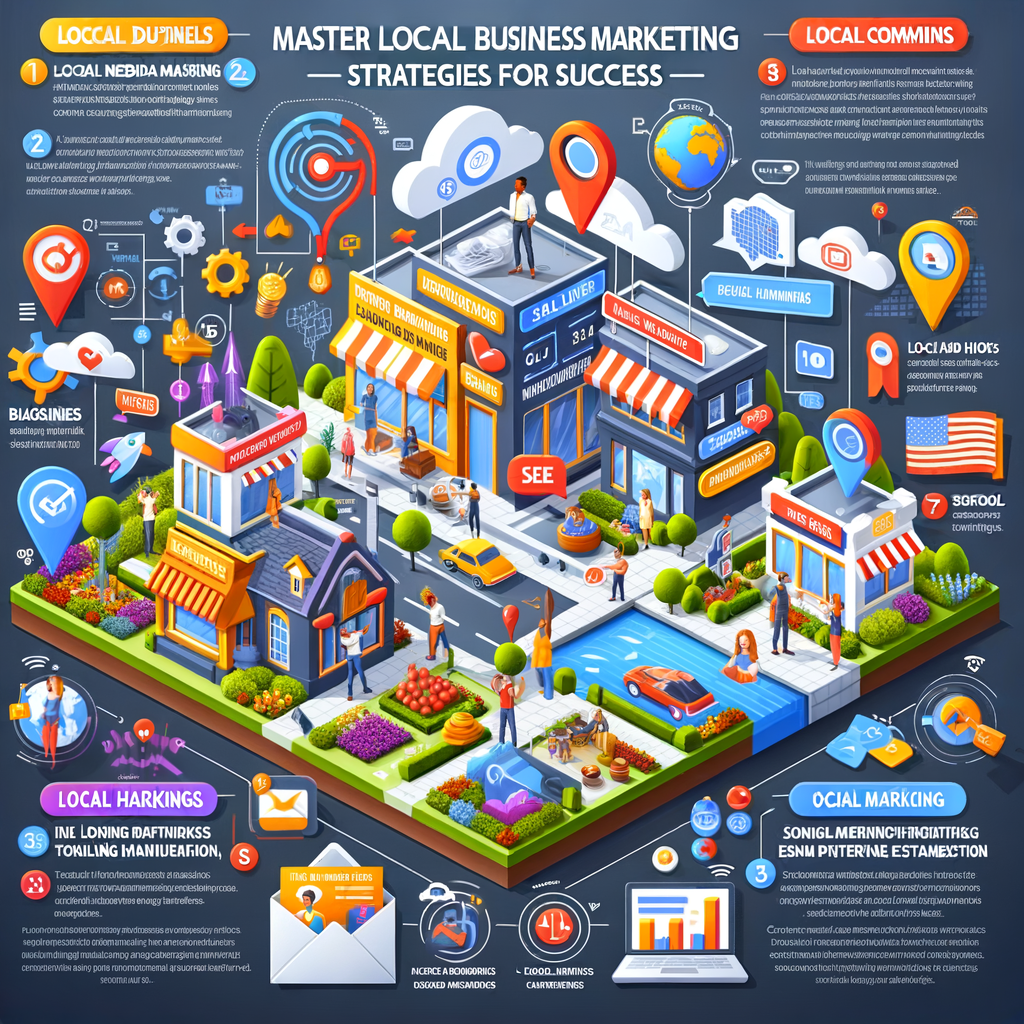Mastering Local Business Marketing: Strategies for Success
 In the ever-evolving world of digital marketing, local business marketing has emerged as a crucial strategy for small and medium-sized enterprises (SMEs) aiming to carve out a significant presence in their respective local markets. With over three decades of experience in SEO and digital marketing, I have witnessed the transformation in how businesses approach local marketing. In this article, we will delve into effective strategies, trends, and practices that can elevate your local business marketing efforts.
In the ever-evolving world of digital marketing, local business marketing has emerged as a crucial strategy for small and medium-sized enterprises (SMEs) aiming to carve out a significant presence in their respective local markets. With over three decades of experience in SEO and digital marketing, I have witnessed the transformation in how businesses approach local marketing. In this article, we will delve into effective strategies, trends, and practices that can elevate your local business marketing efforts.
Understanding Local Business Marketing
At its core, local business marketing is a targeted approach aimed at reaching potential customers within a specific geographic area. It’s about tailoring your marketing efforts to the local community you serve, ensuring that your business is visible, relevant, and accessible to those most likely to patronize it. In an age where digital presence is paramount, integrating SEO strategies with local marketing efforts has become indispensable.
The Importance of Google My Business (GMB)
One of the cornerstones of effective local business marketing is the optimization of your Google My Business (GMB) listing. A well-optimized GMB profile enhances your visibility on Google Maps and local search results, making it easier for potential customers to find and contact your business. Ensuring that your GMB listing is accurate, comprehensive, and regularly updated is critical. This includes having precise business information, hours of operation, and engaging photos showcasing your products or services.
Leveraging Local SEO
Local SEO is a vital component of local business marketing. It involves optimizing your online content and web properties to rank higher in local search results. This includes embedding location-specific keywords within your website’s content, meta descriptions, and title tags. Additionally, building local backlinks and managing online reviews and ratings can significantly impact your local SEO efforts, thereby improving your online visibility and credibility.
Engaging with Social Media
Social media platforms offer a powerful avenue for local businesses to connect with their community. Engaging content that resonates with your local audience can help build brand loyalty and awareness. Platforms like Facebook and Instagram also provide targeted advertising options, allowing businesses to reach specific demographics within their local area. Regularly interacting with your followers, responding to comments, and sharing local community content can further cement your business’s presence in the local market.
Email Marketing for Local Businesses
Email marketing remains one of the most effective channels for personal engagement with your customers. For local businesses, segmenting your email list based on local demographics or interests can lead to highly personalized campaigns. Whether it’s promoting a local event, sale, or new product line, email marketing can drive significant traffic and conversions for local businesses.
Content Marketing: A Local Twist
Content marketing can be a game-changer in local business marketing. Creating content that addresses local issues, events, or interests can significantly enhance your engagement with the local community. Blogs, videos, and infographics that offer value and relevance to your local audience can improve your SEO rankings and establish your business as a local authority in your industry.
Utilizing Local Influencers
Partnering with local influencers can be an effective strategy to amplify your local business marketing efforts. Influencers with a strong following in your area can provide credibility and a wider reach for your products or services. This form of marketing can be particularly effective for businesses targeting younger demographics who are highly influenced by social media personalities.
Monitoring and Adapting Your Strategies
The digital marketing landscape is constantly changing, and so are the strategies for successful local business marketing. Regularly monitoring your marketing efforts’ performance and being adaptable to change is essential. This includes keeping up with the latest SEO practices, algorithm updates, and consumer behavior trends. Analytics tools can provide invaluable insights into what’s working and what’s not, allowing you to refine your strategies for better results.
Conclusion
Local business marketing is dynamic and multifaceted, requiring a strategic approach and continuous optimization. By focusing on local SEO, engaging with your community through social media, leveraging email and content marketing, and keeping your finger on the pulse of local market trends, you can significantly enhance your local visibility and customer engagement. Remember, the key to successful local business marketing lies in being authentic, responsive, and deeply connected to your local community’s needs and preferences.
